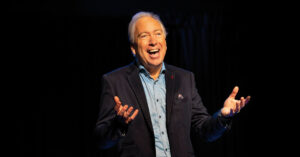Three Ways Innovative Companies Turn Ideas Into Action
None of us will ever know if an idea is truly great until we take it out for a spin and try it out in real life! Here are three simple philosophies that many innovative companies use to guide their approach:
1. They do things to find out what they need to do next; they take a step to discover where the next step should be placed, if at all. They embrace, at least at times, the counterintuitive notion of “leap before you look”.
According to Peter Sims, the author of Little Bets – How Breakthrough Ideas Emerge from Small Discoveries, this is exactly what highly creative people and highly innovative companies often do – leap, then look. In other words, as Sims says, they “do things in order to discover what to do”. They share prototypes of products early on with customers to see what direction they should head in; they start projects without knowing where the finish line is; they dive into something before they have a perfect plan in place. Because just like the story line in an animated movie plot, things will change as soon as your idea comes crashing into reality.
2. They fail fast.
This is a key philosophy of Pixar Studios. For if people are going to be honest about mistakes, then you need to change course quickly.
One of the great advantages small companies have over their behemoth rivals is the ability to be change on a dime, if needed. And the failed idea is often when the true nature of an organization’s culture is revealed. After all, every organization says they value creativity and innovation… until a new idea fails. That’s when the knives often come out, accompanied by a hearty, cynical round of “I told you so”. In some cases the “offending” employees may be publicly berated, given a poor review of their performance appraisal, demoted, or even fired.
And when those same employees are asked a year later for their great ideas, just how far out on the limb do you think any of them will ever venture again? Conversely, organizations with a healthy culture view failure as a learning opportunity. As education. As experimentation. In truly innovative organizations, smart failure is even rewarded because they want to encourage the continual sharing of new ideas, and throwing someone under the boardroom table tends to dampen the whole creative spirit thing.
Intuit software company and Eli Lilly pharmaceuticals have held “failure parties” to celebrate what they learned from a failure and help employees regroup after a setback. Intuit has also used the aptly-named “Swing for the Fence Award” to reward employees for their smart failures. P & G encourages employees to talk about their failures during performance reviews in a positive light. And Centiro Solutions, a Swedish software company, created an informal “failure club” where employees who hold humorous meetings to discuss the mistakes they’ve made and what they’ve learned. But my favorite example is from Grey advertising agency in New York, the same creative geniuses that came up with those hilarious talking baby E-Trade commercials.
Because the company was growing so fast, there was concern it would lose its creative edge. So to encourage an ongoing spirit of risk-taking, the head of the agency instituted the Heroic Failure Award, a Stanley Cup-sized trophy that honored whoever tried an outrageously heroic idea that flopped.
The first winner of the Heroic Failure Award went to the person who suggested they collect some actual cat poop and place it under the meeting table during a pitch meeting to demonstrate to their kitty litter client how well their product worked and how passionate they were about the product. A heroic and risky idea indeed, which resulted in some shocked reactions, but fortunately, also some hearty guffaws.
3. They celebrate small wins.
Seeing progress at work, having a sense of momentum, and celebrating small wins is one of the most important ingredients when it comes to motivating employees. Making changes in any workplace or turning any idea into a reality can be a daunting task, which is why it is critical to celebrate your small wins, champion your ideas, and build momentum daily so that employees see the change happening before them.
There is nothing more motivating than when employee sees their ideas turned into action. Nothing.
 September 2022. Michael Kerr is a Canadian Hall of Fame Speaker who travels the world researching, writing, and speaking about inspiring workplace cultures. He is also the author of 8 books, including The Humor Advantage and The Jerk-Free Workplace.
September 2022. Michael Kerr is a Canadian Hall of Fame Speaker who travels the world researching, writing, and speaking about inspiring workplace cultures. He is also the author of 8 books, including The Humor Advantage and The Jerk-Free Workplace.





